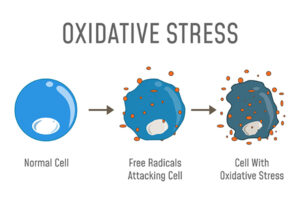
Improving Libido and Male Function, Naturally
‘Issues with male function’ denotes a variety of problems, including those related to impotence and lack of desire. Statistical data
Supporting a woman through all stages of life
Abraham’s Bush – also known as Vitex or Agnus-Castus – is a medicinal plant that has been used since ancient times to treat various health conditions related to a woman’s gynecological system.
Originating in the Mediterranean and Central Asia, Abraham’s Bush has a long history of use as a ‘gynecological herb’. In 1582, Abraham’s Bush was mentioned as a plant that promotes menstruation. 19th century healers used Abraham’s Bush in various doses as a period regulator, to increase breast milk production while breastfeeding, and to speed up placental expulsion.
Why is this herb known as ‘Abraham’s Bush?
Jewish tradition teaches that the bush in which the ram was caught by its horns during Akeidas Yitzchak was the Vitex Agnus-Castus, hence the Hebrew name ‘Abraham’s Bush’.
Abraham’s Bush has gained a reputation as a gynecological healer and has been studied by scientists around the world to evaluate the effectiveness of its healing properties.
Note: Usage of Abraham’s Bush for medical purposes requires professional guidance. It is not recommended for single plant use and should not be taken without consulting a medical professional.
What are Abraham’s Bush’s proven healing properties?
Abraham’s Bush contributes to the reduction of prolactin levels, thereby affecting the regulation of other hormones, including estrogen and progesterone. This reduction results in an improvement in PMS symptoms.
Abraham’s Bush may improve fertility indices, most likely due to its effect on reducing prolactin levels (high levels of prolactin may suppress ovulation). Reduction of prolactin levels is particularly important for women with luteal phase problems, as high levels of prolactin interfere with all aspects related to the ability to conceive.
The hormonal balancing effects of Abraham’s Bush may also help alleviate the symptoms of menopause.
Abraham’s Bush: Safety
Abraham’s Bush is generally considered very safe to take. Rarely, it may cause minor side effects such as nausea, skin rash, heavier than usual period, and/or headaches. These effects usually disappear when treatment is stopped.
Women who are pregnant or breastfeeding, children, and those taking prescription drugs (including pills) should consult a doctor before taking dietary supplements that contain Abraham’s Bush.
Disclaimer: Medicinal plants are not drugs. The purpose of this article is to provide a general overview of approaches in complementary medicine and the information provided does not constitute a qualified medical recommendation. This article is not intended to diagnose or treat any disease and is not a substitute for medical advice or treatment. Always contact your health practitioner before starting any nutritional supplement programs.

‘Issues with male function’ denotes a variety of problems, including those related to impotence and lack of desire. Statistical data

The effect of oxidative stress on male fertility and sperm quality indicators.
Fertility problems are very common, affecting approximately 1 in 6 couples.

In recent decades, women throughout the world have turned to traditional medicine to balance hormonal function and to treat common
Sign up for our fertility guidance campaign.
Get information, tips, and advice regarding fertility and relationships via email.

כשרות
Vida’s dietary supplements are not medicine. They are not intended to diagnose, treat, cure or prevent any disease. In case of a medical concern, please consult your attending physician.
Vida products are manufactured in a factory that meets the requirements of the GMP for proper manufacturing conditions. The information provided about them has not been evaluated by the GMP.
The information provided on this website is for informational purposes only and is not intended as a substitute for advice from your physician or other health care professional. You should not use the information on this site to diagnose or treat any health problem or condition. Always consult with a healthcare professional before starting any diet, exercise or nutritional supplement program, before taking any medication, or if you suspect you might have a health problem.
Always read the information included with your product for the most up-to-date nutritional information.
FDA Disclaimer: These statements have not been evaluated by the Food and Drug Administration. This product is not intended to diagnose, treat, cure or prevent any disease.
designed by b-splash.com | powered by c-site.co.il
Get information, tips, and advice regarding fertility and relationships.